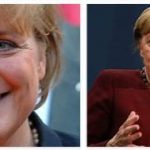
Germany after the 2009 Election Part III
6: Stabilization, control and energy policy
Merkel and the Grand Coalition went out early with government stabilization measures after the financial crisis unfolded in full from the autumn of 2008. Among other things, the German state quickly guaranteed all deposits in all German banks. This was criticized by other countries, who feared that many would move their bank deposits to German banks. Merkel also tried to support the German car industry by allowing the state to allocate large sums to a sharply increased wreck deposit on old cars in order to thereby stimulate new car purchases. Here, on the other hand, one could not support the purchase of only German cars. This would be in breach of the competition rules of the EU and the WTO (World Trade Organization). So the big question in Germany, which in the rest of the world over the past year has revolved around how to set up economic stimulus measures that favor their own national economy as much as possible.
Internationally, Merkel has marked herself as a heavy voice for stronger political control over financial institutions and large corporations, and against fat bonus schemes and executive salaries. The problem is that the world today houses some financial giants that the international capitalist system allegedly cannot afford to go bankrupt. If these few fail, others fall like houses of cards around them. While financial institutions pay out most of the profits to shareholders in good years, they must be saved by taxpayers’ money when the crisis hits. In the desire for more political control, Merkel is in line with the majority in the EU.
One issue where the FDP and CDU / CSU agree is energy policy. Both want to postpone the decommissioning of German nuclear power plants. After the Greens entered government offices in 1998, the red-green government decided to phase out nuclear power in Germany. The country’s 17 nuclear power plants were to be phased out. Merkel had to accept this in 2005 to rule together with the SPD. Her view is that nuclear power is a clean energy source from a climate perspective, and that it will be important as a transition technology to a world of renewable energy sources. Own nuclear power plants also contribute to reduced dependence on imported energy, such as Russian gas. Both climate policy and security of energy supply thus speak in favor of extended life for German nuclear power plants.
7: Where is German foreign and security policy going? 1
The federal election will hardly involve any fundamental change of line in German foreign and security policy, which for 60 years has been based on effective multilateralism . German membership of NATO and the EU has been both an “anchor” and a “multiplier” for German influence and power. This strategy calls for effective, dynamic institutions that are relevant to solving German challenges. Well-functioning multilateral organizations are perhaps more important to Germany than to any other large European country. The country’s history has shown that when it is woven into international, multilateral structures, it lives in peace with the outside world. If Germany goes alone, it quickly produces counter-alliances and instability.
On the other hand, Germany will always – by virtue of its size – influence organizations of which the country is a member in a decisive way. That this requires a certain fingertip feeling, Merkel has shown that she understands. She has chosen to cultivate Germany’s role as a compromiser and mediator in a Europe of large and small, sought to improve relations with the United States, made Germany more credible and responsible as a security partner and sought a balance between interest-based and value-oriented policies.
This has meant that Merkel has been at least as popular abroad as at home for the past four years.
When she entered the international scene in the autumn of 2005, she faced a crisis-stricken EU and a strained transatlantic partnership. The anti-communists George Bush and the East German Merkel found each other immediately. However, she did not back down from criticizing the US Guantánamo detention camp. Her government also stood firm on its predecessor Gerhard Schröder’s decision not to send German troops to Iraq.
But where Schröder had loudly agitated against the US-Iraq war, with Vladimir Putin and Jacques Chirac by his side, and proposed increased European independence for EU military cooperation, Merkel presented her views in a sober and low-key manner. She quickly brought German security policy back into the Atlantic fold and assured that Germany was a loyal NATO ally. The problem for a restrained and strongly pacifist Germany, a country located in Europe according to remzfamily.com, however, is that alliance loyalty and multilateralism today involve sending troops outside the country’s borders in either NATO, UN or EU operations.
Today, only Die Linke opposes Germany, in line with other allies, contributing to ISAF. But as in many other allied countries, there is now a nascent debate about NATO’s strategy in Afghanistan. Here, however, the two new government partners stand together. One difference, however, is that the FDP, unlike the CDU, wants the abolition of conscription in favor of the professionalisation of a Bundeswehr (the German defense) which is increasingly in demand outside Germany’s borders.







